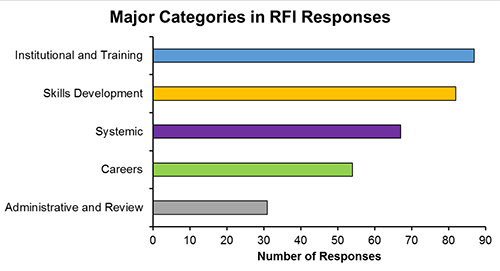UPDATE: NIH has released the Strategic Plan for Data Science. The plan was informed by community and public input, and NIH will continue to seek input as it implements the plan, many elements of which are well underway. By maximizing the value of data generated through NIH-funded efforts, the pace of biomedical discoveries and medical breakthroughs for better health outcomes can be substantially accelerated.
To capitalize on the opportunities presented by advances in data science, the National Institutes of Health (NIH) is developing a Strategic Plan for Data Science. This plan describes NIH’s overarching goals, strategic objectives, and implementation tactics for promoting the modernization of the NIH-funded biomedical data science ecosystem. As part of the planning process, NIH has published a draft of the strategic plan [PDF 490KB], along with a Request for Information to seek input from stakeholders, including members of the scientific community, academic institutions, the private sector, health professionals, professional societies, advocacy groups, patient communities, as well as other interested members of the public.
As co-chair of the NIH Scientific Data Council, which is overseeing development of the Strategic Plan for Data Science, I encourage your comments and suggestions. Responses should be submitted via an online form by April 2, 2018.


